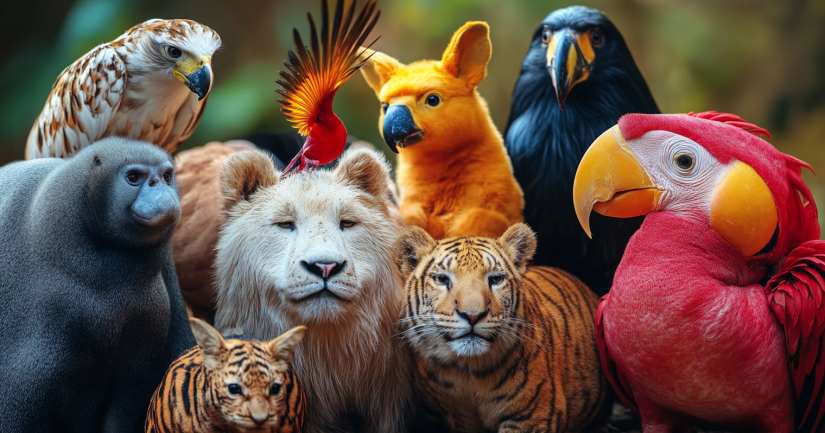
Test your animal knowledge across the globe with the comprehensive General Knowledge About Animals Quiz, Test Your Wildlife Wisdom
General Knowledge About Animals Quiz invites you to explore the fascinating world of animals, from the smallest insects to the largest mammals. How much do you really know about animal behavior, habitats, diets, and unique adaptations? This quiz challenges your wildlife knowledge while uncovering surprising facts about creatures from around the globe.
Understanding animals involves more than knowing species names. It includes recognizing behaviors, survival strategies, and ecological roles. For instance, did you know that octopuses have three hearts? Or that elephants can communicate using low-frequency sounds humans can’t hear? The General Knowledge About Animals Quiz evaluates your understanding of animal biology, habitats, and fun facts. General Knowledge About Animals Quiz invites you to test your wild IQ across habitats, behavior and fascinating factoids. Slither over to What Is My Favorite Animal Quiz and then sprint over to Aging Deer On The Hoof Quiz. Enjoy your general odyssey!
Exploring Animal Habitats and Adaptations
Animals adapt to their environments in extraordinary ways. Camels store fat, not water, in their humps to survive the desert, while Arctic foxes grow thick fur to withstand freezing temperatures. Moreover, rainforest creatures like sloths move slowly to avoid predators, blending seamlessly with their surroundings. This quiz tests your knowledge of how animals survive in diverse habitats worldwide.
Animal Diets and Feeding Behaviors
Different animals follow unique diets based on their environment and physiology. Herbivores, like giraffes and deer, feed primarily on plants, while carnivores, such as lions and sharks, hunt other animals. Additionally, omnivores like bears and raccoons eat both plants and meat. This quiz challenges you to identify animals based on their feeding habits and dietary adaptations.
Unusual Animal Behaviors and Survival Tactics
Many animals display surprising behaviors to survive. For example, opossums “play dead” to avoid predators, while horned lizards can squirt blood from their eyes as a defense mechanism. Moreover, dolphins use echolocation to navigate and hunt in murky waters. This quiz explores how animals use instinct and intelligence to thrive in the wild.
Fun Facts About the Animal Kingdom
Did you know that sea otters hold hands while sleeping to stay together? Or that a group of flamingos is called a “flamboyance”? Additionally, kangaroos can’t move backward, and some frogs can freeze solid during winter and thaw out in spring. This quiz uncovers more fascinating animal facts while testing your general knowledge.
Practical Tips for Expanding Your Animal Knowledge
Expanding your animal knowledge involves exploring documentaries, books, and wildlife experiences. Visiting zoos, aquariums, and nature reserves offers hands-on learning. Moreover, wildlife organizations provide educational resources about conservation efforts and species protection. This quiz encourages you to continue exploring the wonders of the animal kingdom.
Take the General Knowledge About Animals Quiz Now
Ready to test your wildlife wisdom? The General Knowledge About Animals Quiz offers an entertaining and educational way to explore the animal kingdom, from common species to rare creatures. Moreover, it provides valuable insights into animal behavior, habitats, and adaptations while challenging what you think you know. Ultimately, this quiz empowers you to appreciate the incredible diversity of life on Earth. Take the quiz now and discover how much you really know about animals!
Animal Knowledge – FAQ
An animal is a living organism that belongs to the biological kingdom Animalia. Animals are typically characterized by their ability to move voluntarily, consume organic material, and respond to their environment. They range from simple organisms like sponges to complex beings such as mammals.
